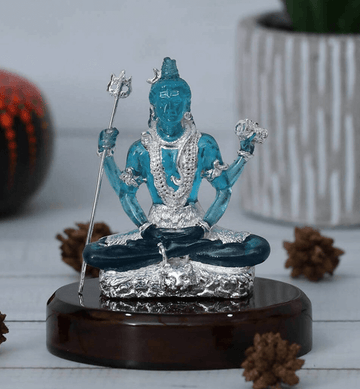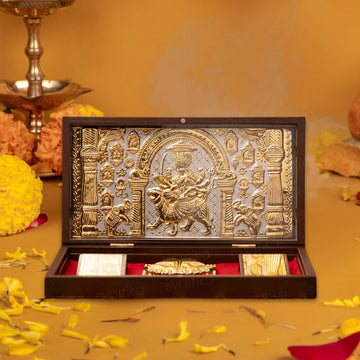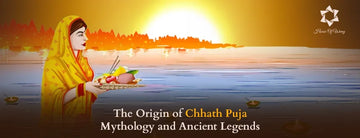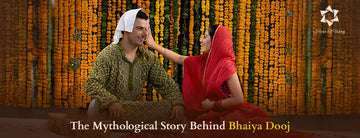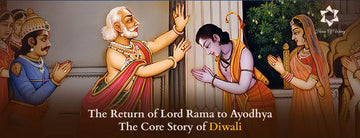Discover why the months that follow Devshayani Ekadashi are filled with spiritual reflection.
Introduction:
An ancient rhythm is born, inspired by the Indian summer when the brightness of Ashadha spreads overhead and the monsoon song winds through the countryside. It is a rhythm that sleeps instead of celebrating pranam before family celebrations or weddings. Devshayani Ekadashi, one of the most important days when our beloved Lord Vishnu, the preserver of the universe, settles into Yoga Nidra, a four-month cosmic sleep, starts this rhythm. The Hindu ritual calendar starts to slow down. No big events, no marriages, homes look more inward with a focus on worship, prayer, and austerities.
So what exactly happens on Devshayani Ekadashi? What is it in the customs of Lord Vishnu and Tulsi that creates so much authority in how we will remember or forget our major life events? Let's go into this holy silence and see, in what way this Ekadashi alters the process of customs and ceremonies of Hinduism, particularly weddings, worldwide.
What is Devshayani Ekadashi?
On the eleventh day of the waxing moon of Ashadha in the Hindu pantheon, Devshayani Ekadashi traditions are celebrated by devotees. Followers believe that on this day, Lord Vishnu enters into Yoga Nidra or divine sleep in the cosmic ocean, Ksheer Sagar. His sleep also represents the start of Chaturmas, which is considered a four-month period where sadhan is auspicious, while festivities would be considered inauspicious.
The devotees will refrain from using tamasic foods, chant the Vishnu Sahasranama, and generally execute rigid fasts. To awaken the inner world, the outer world must be silenced. This is part of the Devshayani Ekadashi rituals, where stillness replaces celebration.
This time is more than symbolic. According to astrology, the time resonates with the season of monsoons when traveling with guests, farming in nature, and ceremonial banquets can be limiting. However, there is a call for retreat, contemplation, and realigning of one's spiritual moral compass that goes beyond some practical, relatable experience.
The Spiritual Importance of Yoga Nidra by Lord Vishnu
What does God's sleep mean?
This is not sleep as we know it in Hinduism. In Vishnu's Yoga Nidra, creation is maintained via introspection and meditation rather than activity. No new endeavors, such as marriage, building, or significant life changes, are started during this time.
The Brahma Vaivarta Purana beautifully expresses that the world must take repose when Vishnu does. In his repose, we are encouraged to submit, to retreat from the turbulence of worldly life, and to resort to contemplation, sadhana, and silence. This forms the foundation of Devshayani Ekadashi dos and don’ts, particularly around initiating major life transitions.
The Sacred Plant Tulsi and the Sacred Relationship Between Tulsi and Vishnu
No account of Vishnu would be complete without Tulsi, the holy basil. In every Hindu home, there exists an homage to Tulsi, who, before a plant, is a goddess, and closer to home, Lord Vishnu's wife in the form of Vrinda.
The Skanda Purana states that Vrinda, a penitent and devoted wife, was duped and ultimately transformed into the Tulsi. When Lord Vishnu learned of her purity and devotion, he said he wanted no sacrifice that didn't contain some Tulsi leaves. This Tulsi and Vishnu story represents more than just a gesture; it serves as an example of devotion that reaches beyond human love.
Tulsi is considered a protector of holiness. Additionally, during Chaturmas, when Vishnu is sleeping and rituals become more introspective, her presence, rooted, fragrant, and watchful, becomes even more crucial. The religious significance of Tulsi is felt throughout the Hindu calendar, but especially amplified during Vishnu’s rest.
Tulsi Vivah's Story and Its Connection to Dev Uthani Ekadashi
When Lord Vishnu wakes up from Yoga Nidra on Dev Uthani Ekadashi or Prabodhini Ekadashi, the pause of Chaturmas has ended. Tulsi and Vishnu as Shaligram will ceremonially unite on that auspicious day in a ceremony called Tulsi Vivah.
Although these rituals feel like a real wedding - haldi, kanyadaan, and mangalsutra - you are performing this symbolic marriage almost always at home or temples, which means it is time for weddings and auspicious events again. Life resumes, just as Vishnu did.
This is a good example to illustrate why marriages are not held after Ekadashi, because it would be unlucky to get married when Tulsi is waiting to marry and Vishnu is asleep. These Devshayani Ekadashi marriage rules aren’t superstition; they mirror a divine rhythm of pause and purity.
Why are auspicious functions like marriages not performed after Devshayani Ekadashi?
Many scriptures, including the Padma Purana and Narada Purana explicitly forbid marriages or celebrations during Chaturmas. Why are these restrictions laid?
-
Energetic Stillness:
It is thought that the cosmos is in a state of meditation. Large rituals that disturb it are viewed as unbalanced.
-
The Absence of Vishnu:
Every Hindu marriage is thought to require Vishnu's blessings. The couple may begin their journey without divine grace if the wedding is performed while he is asleep.
-
Tulsi's Status:
Tulsi, as the "bride-to-be", cannot be used in any ritual until she consummates her marriage to Vishnu on the day of Dev Uthani Ekadashi. Weddings are then delayed, and therefore, no "festivities and celebrations" are held, as it's a deeply felt alignment in the cosmos and not superstition, especially after Devshayani Ekadashi.
These are part of the broader Chaturmas marriage rules, honoring time, space, and the unseen spiritual rhythms.
Chaturmas: The Time of Worship, not Celebration
Chaturmas is a holy time in the Hindu calendar, leading from Ashadha to Kartik. It is:
-
A time for upavasa and vrata celebrations such as Navratri, Hartalika Teej, and Shravan Somvar.
-
A time for pilgrimage and discourse.
-
characterized by dietary and behavioral self-control, avoiding non-vegetarian, onion-garlic, and worldly pleasures.
During Chaturmasya vasa, spiritual leaders, saints, and rishis frequently choose to remain in one location and teach and meditate. Families in contemporary homes also lead simpler lives, lighting lamps at dusk, refraining from loud music, and performing puja every day.
Cultural Customs Adherence to Throughout Chaturmas in Various Areas
Maharashtra observes the importance of Ashadhi Ekadashi in the Pandharpur Wari, a divine pilgrimage to the temple of Vitthal. Devotees of Tamil Nadu observe Purattasi by observing fasts in honor of Lord Venkateswara. Durga Puja in Bengal provides a much-anticipated distraction from the uninterrupted religious rituals only after the period of Shradh. Ceremonies marking the Tulsi Vivah and Devshayani Ekadashi often signify the commencement of the marriage season in Gujarat and Rajasthan. Each area also has its own unique flavour, but all distinctly reinforce the universal idea that the world must pause while Vishnu enjoys his annual, well-deserved sleep.
The Reasons for the No-Marriage Period
Our rishis could grasp the stars, the sky, and soil, and the human body.
-
Travel, logistics, food safety, and any potential illness risks are tenuous during the monsoon rains.
-
So, weddings that included parties with meals during the monsoon were discouraged to mitigate health risks.
-
At the psychological level, it is a season of reflection, not extroversion, and this is beneficial for spiritual renewal.
Therefore, the roots of Devshayani Ekadashi and Chaturmas are as much in mythological symbolism as they are in ecological intelligence. These Hindu marriage restrictions carry both spiritual and seasonal wisdom.
Following Dev Uthani Ekadashi, Weddings Resume
Lord Vishnu awakens as Kartik brightens. The skies are clear once more after Tulsi's ceremonial marriage.
A season of shubh muhurats, family get-togethers, and colorful rituals is then ushered in by the start of Hindu weddings.
In many traditions, Dev Uthani Ekadashi is also regarded as the spiritual new year. With Tulsi and Vishnu connection blessing all future weddings, what started out as rest now turns into a celebration.
Numerology and Astrology Perspectives
-
Ekadashi Tithi is governed by Vishnu, making it the BEST time for purification and clarity of thought. Ekadashi fasting significance is linked to clarity, detachment, and calling the divine.
-
The timing of Ashadhi Ekadashi is also important, since it typically falls during auspicious nakshatras, i.e., Punarvasu, Pushya, etc.
-
Chaturmas is a devoted period for dharma, balancing and working through our emotional processes.
-
Astrologers stress the importance of not conducting the following pleasantries because of the movement of planets and the spiritual undercurrent during Chaturmas: Graha Pravesh, Naamkaran, and Vivah Sanskar.
Wemy's Sacred Offerings: A Soft Integration
We respect these sacred rhythms at The House of Wemy. Our brass Vishnu idols, handcrafted Tulsi stands, and ceremonial décor sets are made for bhav and bhakti as well as beauty.
If you've been searching for great Hindu Religious Gift Ideas, our collections will serve you well when celebrating Chaturmas, Tulsi Vivah, or just realigning your home with spiritual energy. Browse thoughtfully crafted pieces that display a story of divinity, tradition, and artistry.
Check out our traditional yet revered decor collection designed for the contemporary Indian home, perfect for celebrating Chaturmas or organizing Tulsi Vivah.
Final Take
Devshayani Ekadashi is not a limitation. It serves as a reminder to stop, think, and re-align with the heavenly cycles that control the earth and heavens.
We are invited to calm our agitated rituals when Lord Vishnu is sleeping. With Tulsi at his side, life blossoms once more when he awakens, blessing all subsequent sacred unions.
Will we respect this divine interlude in our own lives?
At The House of Wemy, where tradition and passion collide, discover more devotional tales and Hindu religious gift ideas crafted with reverence and meaning.

